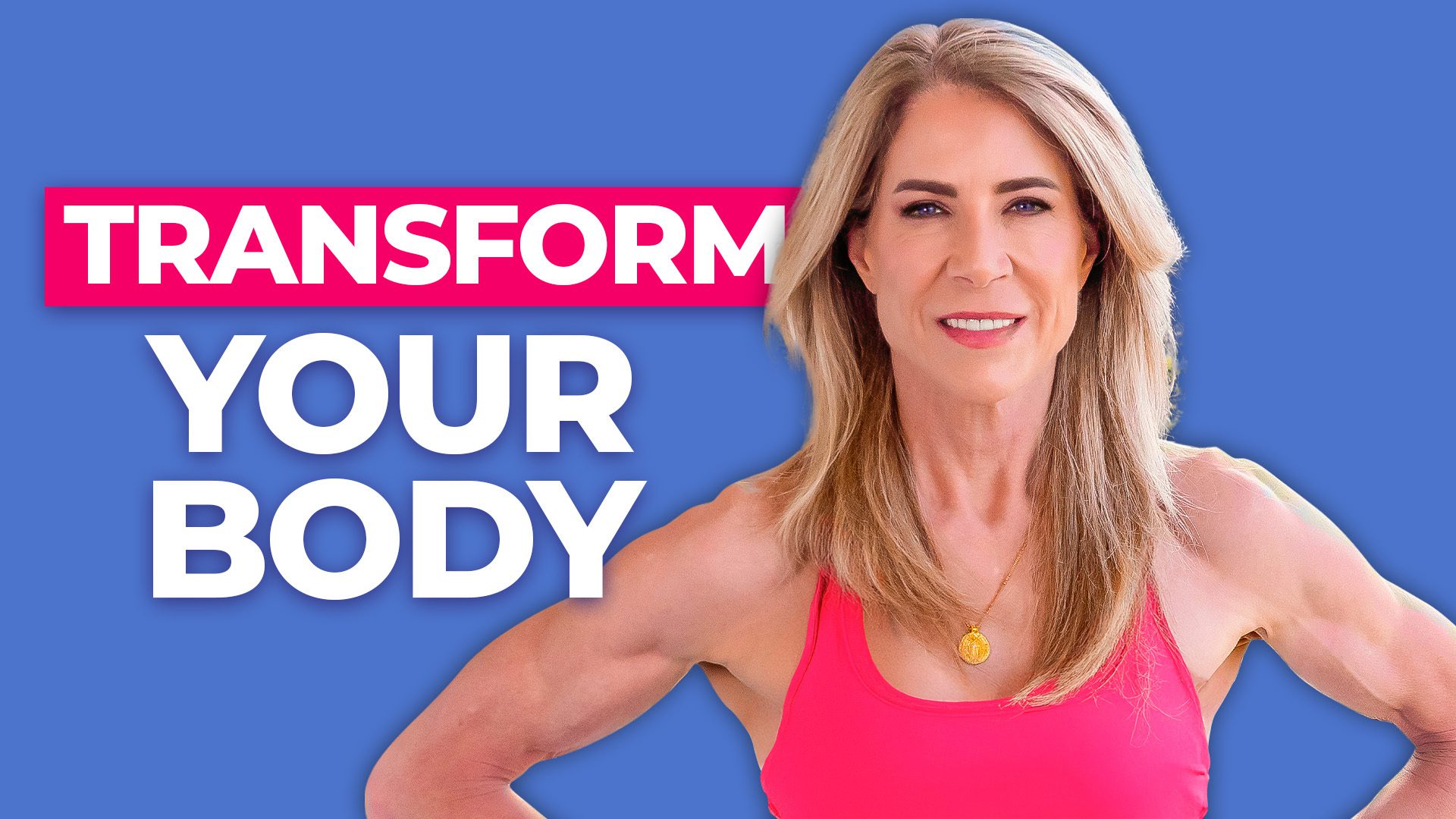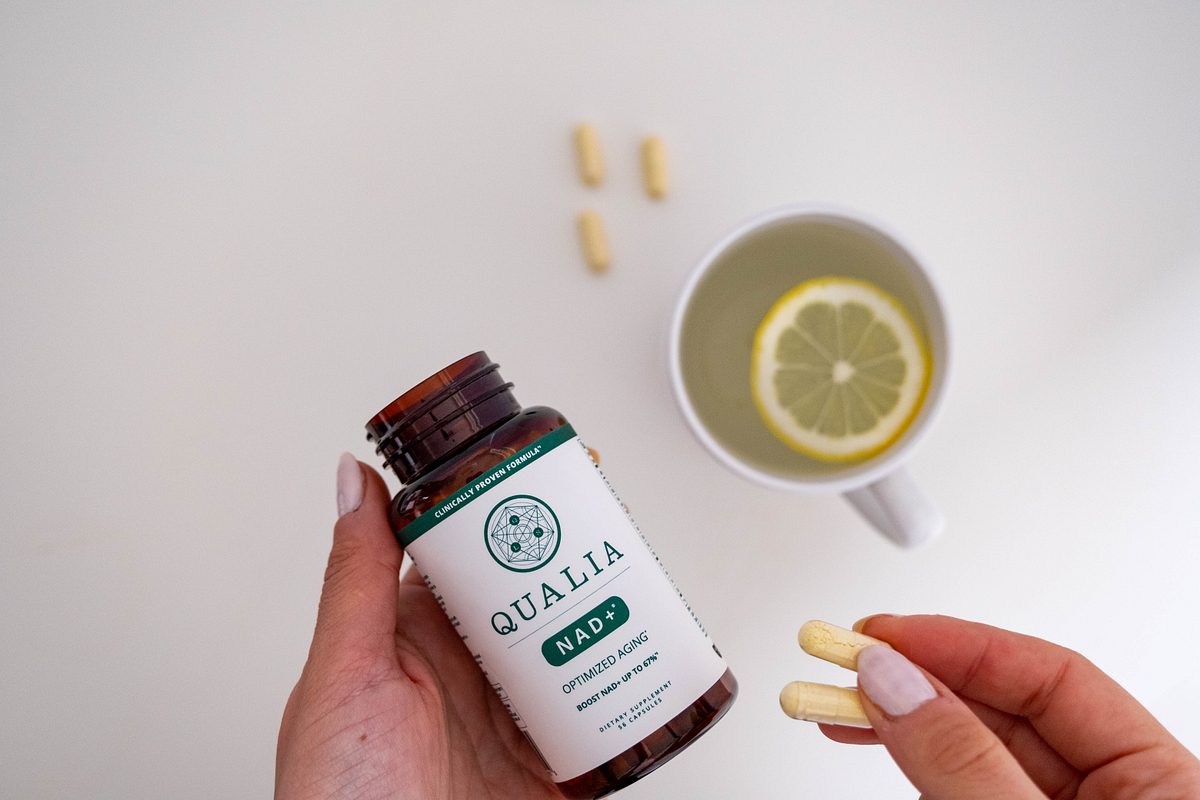Menopause is more than just a change in reproductive health—it’s a transformation that impacts your entire body. One of the most noticeable areas affected is your skin. As hormonal shifts occur, you may experience reduced elasticity, thinning, dryness, and an increase in wrinkles. These changes can be surprising and have an impact on your confidence.
But with the right knowledge and proactive skincare, you can maintain a healthy, glowing complexion during this phase of life.
Understanding the Role of Estrogen in Skin Health
Estrogen plays a crucial role in maintaining youthful, healthy skin. This hormone supports the production of collagen and elastin—essential proteins that provide skin structure, flexibility, and resilience. However, as you enter menopause and estrogen levels decline, the production of collagen and elastin decreases, leading to less firm and elastic skin.2-4
The impact of reduced estrogen is significant: it can reduce your body’s production of collagen by 2% every year post-menopause.5 This decline manifests as sagging skin, particularly around your jawline, cheeks, and neck, as well as increased dryness and more noticeable wrinkles. Estrogen helps your skin retain moisture and maintain thickness, so its decrease leads to a drier, more fragile complexion, fundamentally altering your skin’s appearance and feel.
3 Ways Menopause Can Impact Your Skin
1. Loss of Firmness and Elasticity
As you progress through menopause, you’ll likely notice significant changes in your skin’s resilience. Decreased collagen and elastin production means your skin loses its ability to bounce back.6
You may see these changes most prominently around your jawline and cheeks, where sagging can alter your facial contours. The loss of elasticity makes your skin more vulnerable to gravity, potentially resulting in jowls and drooping in your lower face and neck, making your overall appearance less youthful.
2. Thinning Skin and Increased Wrinkles
One of the most noticeable changes during menopause is thinning skin. With lower estrogen levels, your skin’s outer layer becomes fragile, making it susceptible to damage. Studies show that skin thickness can decrease by 1.13% annually in women with low estrogen.
This thinning, coupled with slower cell production and reduced moisture retention, leads to more pronounced wrinkles and fine lines, as your skin’s natural plumping effects fade. A weakened protective barrier also leaves your skin vulnerable to UV rays and environmental pollutants, accelerating the aging process.7, 8
3. Decreased Oil Production and Skin Dryness
The drop in estrogen slows down oil production, depriving your skin of its built-in moisturizer. This leads to rough, dull skin that feels tight, especially after cleansing. Increased moisture loss can result in flakiness and uncomfortable itchiness, making your complexion feel perpetually thirsty for hydration.
It’s essential to adopt a more intensive moisturizing routine to compensate for your skin’s reduced ability to retain moisture naturally.9
How to Manage Menopause-Related Skin Changes
Adopt a Proactive Skincare Routine
Taking care of your skin during menopause doesn’t have to be complicated. One key step is incorporating skincare products like retinoids and peptides that help boost collagen production. Retinoids, derived from vitamin A, can stimulate collagen production and reduce the appearance of wrinkles, while peptides act as messengers that signal your skin to produce more collagen.10, 11
Hydration is also crucial for your skin during menopause. Look for products containing hyaluronic acid, which acts like a sponge to retain moisture, and ceramides, which strengthen your skin’s barrier to lock in hydration and keep irritants out. When cleansing, go for gentle, creamy cleansers that won’t strip away your skin’s natural oils because harsh soaps can exacerbate dryness.
Here are a few items that are currently in my skincare routine:
- Delavie Sciences Age Defying Serum, an antioxidant-rich serum that helps restore moisture and reduce visible signs of aging.
- Estro2 Rejuvenate by Karen Martel, a face cream with bioidentical estradiol and estriol to combat skin aging, wrinkles, and pores, while also supporting mood, energy, vaginal health, and weight.
- OneSkin for menopausal skin challenges like dryness and loss of elasticity.**
- Timeline Skincare powered by Mitopure, a powerful urolithin A molecule clinically proven to enhance the skin’s natural energy supply, supporting cellular renewal from within.**
Drink Enough Water
Topical hydration is great for your skin, but you also want to hydrate from the inside out. Drinking enough water helps keep skin cells plump and resilient, which can diminish the appearance of fine lines and wrinkles.12 This handy calculator can help determine how much water you need daily.
Your diet also impacts your skin. Focus on skin-supportive foods rich in antioxidants, healthy fats, and essential vitamins. Colorful, low-sugar fruits like berries and vegetables protect your skin from damage, while healthy fats found in avocados and nuts help maintain suppleness. Vitamins C and E are particularly important, as they support collagen production and skin repair.13-15
Optimize Protein Intake
Increasing your protein intake can significantly benefit your skin during menopause. Protein is essential for collagen production and skin repair, playing a vital role in cell regeneration to maintain a youthful complexion. As your skin cells naturally turnover, protein ensures that new, healthy cells are ready to take their place.16, 17
Aim for 30-50 grams of protein at every meal (and 100+ grams protein daily) to support this process. Focus on high-quality protein sources, such as grass-fed/grass-finished meat, wild-caught fish, and pastured eggs if you can tolerate them. These foods provide protein and other nutrients that benefit your skin like the omega-3 fatty acids in fatty fish that can help keep your skin supple and moisturized.18

Manage Stress Effectively
Stress is one of the best ways to age yourself fast. Chronic stress can exacerbate skin issues during menopause, acting like fuel on the fire. Elevated cortisol levels increase inflammation, making your skin more susceptible to breakouts and redness, potentially accelerating the aging process.19
To counteract these effects, prioritize stress management. Incorporate practices like meditation and mindfulness, which can calm your mind and lower cortisol levels, allowing your skin to recover. Yoga and deep breathing exercises are also effective, promoting relaxation and improving circulation to deliver more oxygen and nutrients to your skin cells.
Prioritize Quality Sleep
During sleep, your body repairs and regenerates skin, increasing blood flow, rebuilding collagen, and combating daily damage.20 When you don’t get enough sleep, you might notice dullness, puffiness, and even more pronounced wrinkles.
Aim for 7-9 hours of sleep each night to allow your skin to rejuvenate. Stick to a consistent sleep schedule, even on weekends, and create a relaxing bedtime routine—whether that’s reading, taking a warm bath, or doing gentle stretches. Make your bedroom sleep-friendly by keeping it cool, dark, and quiet, too. Consider using a quality sleep supplement that contains melatonin and other calming nutrients to help you drift off more easily.*
Sleep&Glow creates cutting-edge sleep products that boost both sleep quality and beauty. Their signature Omnia pillow helps prevent sleep wrinkles and reduces morning puffiness, while their blankets, loungewear, and supplements support different aspects of restful sleep. By blending ergonomic design with sleep-enhancing materials, Sleep&Glow is dedicated to improving sleep and overall wellness. Shop Sleep&Glow and use code jjvirgin for $20 off pillows and blankets.**
Use Sun Protection
Research shows that UV exposure is responsible for up to 80% of visible skin aging, including dryness, flaking, wrinkles, and uneven pigmentation. It also increases your risk of skin cancer. During this time, when your skin is more vulnerable, sun protection becomes even more crucial.21, 22
Make it a habit to apply broad-spectrum sunscreen with at least SPF 30 part of your daily routine, regardless of the weather. Be sure to cover all exposed skin, including your face, neck, and hands. Embrace a multi-layered approach by wearing protective clothing like wide-brimmed hats, long-sleeved shirts, and sunglasses. You can enjoy the outdoors—just be smart about protecting your skin from the sun’s damaging effects.
Supplement with Collagen
Collagen peptide supplements can be a powerful ally in your fight against menopause-related skin changes. As you age, especially during menopause, your body’s natural collagen production slows down significantly. Collagen provides the essential building blocks to support skin health from the inside out.23
Supplementing with collagen can enhance moisture retention and elasticity. Studies show women who take collagen peptides regularly experience noticeable skin hydration and elasticity improvements. Some research even suggests that these supplements can help reduce the appearance of wrinkles.24, 25
Essential Tips for a Radiant Complexion
Menopause can bring significant changes to your skin, often accelerating the aging process. But with the right strategies, you can effectively manage these changes and maintain a healthy, vibrant complexion. That’s why I created Inner Wellness, Outer Beauty: Your Anti Aging Cheat Sheet to provide the tips and tools I use to keep my skin looking its best during this transition.
This guide offers my top tips on the best foods, key nutrients, and lifestyle changes to support your skin health during menopause. While you can’t control hormonal shifts, you can give your skin the care it needs—and this guide will show you how. Whether you’re facing dryness, loss of elasticity, or other concerns, this cheat sheet provides the knowledge to keep your skin radiant through menopause and beyond.
Get your FREE copy of Inner Wellness, Outer Beauty: Your Anti-Aging Cheat Sheet here.
References:
- American Academy of Dermatology: Caring for your skin in menopause
- Stevenson S, Thornton J. Effect of estrogens on skin aging and the potential role of SERMs. Clin Interv Aging. 2007;2(3):283-97. doi: 10.2147/cia.s798. PMID: 18044179; PMCID: PMC2685269.
- Cleveland Clinic: Elastin: What it is, Structure, Function & Supplements
- Cleveland Clinic: Collagen: What It Is, Types, Function & Benefits
- Thornton MJ. Estrogens and aging skin. Dermatoendocrinol. 2013 Apr 1;5(2):264-70. doi: 10.4161/derm.23872. PMID: 24194966; PMCID: PMC3772914.
- Healthline: Understanding How Your Skin Changes During Menopause
- Thornton MJ. Estrogens and aging skin. Dermatoendocrinol. 2013 Apr 1;5(2):264-70. doi: 10.4161/derm.23872. PMID: 24194966; PMCID: PMC3772914.
- Vogue: Why Estrogen Is a Magic Bullet for Your Skin and Vaginal Health
- WebMD: Tips for Better Skin After Menopause
- Harvard Health: Do retinoids really reduce wrinkles?
- Allure: How This Ingredient Helps Build Collagen for Firmer Skin
- Clinikally: How to Hydrate Skin for Plumper & Healthier Skin
- EatingWell: 5 Antioxidant Foods to Protect Your Skin From Sun Damage
- Healthline: The 12 Best Foods for Healthy Skin
- Traber MG, Stevens JF. Vitamins C and E: beneficial effects from a mechanistic perspective. Free Radic Biol Med. 2011 Sep 1;51(5):1000-13. doi: 10.1016/j.freeradbiomed.2011.05.017. Epub 2011 May 25. PMID: 21664268; PMCID: PMC3156342.
- Healthline: 13 Foods That Help Your Body Produce Collagen
- Alton Memorial Hospital: High-Protein Diet for Wound Care
- Healthline: Potential Benefits of Omega-3s for Skin and Hair
- Chen Y, Lyga J. Brain-skin connection: stress, inflammation and skin aging. Inflamm Allergy Drug Targets. 2014;13(3):177-90. doi: 10.2174/1871528113666140522104422. PMID: 24853682; PMCID: PMC4082169.
- Healthline: Beauty sleep: Is it real?
- Amaro-Ortiz A, Yan B, D’Orazio JA. Ultraviolet radiation, aging and the skin: prevention of damage by topical cAMP manipulation. Molecules. 2014 May 15;19(5):6202-19. doi: 10.3390/molecules19056202. PMID: 24838074; PMCID: PMC4344124.
- Healthline: Understanding How Your Skin Changes During Menopause
- Al-Atif H. Collagen Supplements for Aging and Wrinkles: A Paradigm Shift in the Fields of Dermatology and Cosmetics. Dermatol Pract Concept. 2022 Jan 1;12(1):e2022018. doi: 10.5826/dpc.1201a18. PMID: 35223163; PMCID: PMC8824545.
- Bolke L, Schlippe G, Gerß J, Voss W. A Collagen Supplement Improves Skin Hydration, Elasticity, Roughness, and Density: Results of a Randomized, Placebo-Controlled, Blind Study. Nutrients. 2019 Oct 17;11(10):2494. doi: 10.3390/nu11102494. PMID: 31627309; PMCID: PMC6835901.
- Pu SY, Huang YL, Pu CM, Kang YN, Hoang KD, Chen KH, Chen C. Effects of Oral Collagen for Skin Anti-Aging: A Systematic Review and Meta-Analysis. Nutrients. 2023 Apr 26;15(9):2080. doi: 10.3390/nu15092080. PMID: 37432180; PMCID: PMC10180699.
*These statements have not been evaluated by the Food & Drug Administration. Products mentioned are not intended to diagnose, treat, cure, or prevent any disease. The views in this blog by JJ Virgin should never be used as a substitute for professional medical advice. Please work with a healthcare practitioner concerning any medical problem or concern.
**I couldn’t make it without supportive relationships, and I bet you feel the same! That’s why my team and I offer you products and services we believe in. If you happen to purchase something I recommend here, I may receive some kind of compensation. However, I only bring you partners whose content and core values will serve you with the same commitment to excellence my team and I strive for every day. Please be in touch with any concerns.






